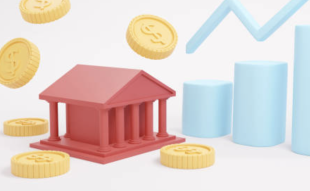Join Our Telegram channel to stay up to date on breaking news coverage
Coinbase (COIN), the second biggest cryptocurrency exchange in the world, expresses its favorable stance towards Canada due to its clear regulatory framework and collaborative engagement with companies. In contrast, the United States lacks regulatory transparency and predominantly relies on enforcement actions within the industry.
Clear Guidelines and Collaborative Engagement Drive Coinbase’s Favorable Stance
Coinbase’s ongoing conflict with the Securities and Exchange Commission (SEC) is no secret, as the SEC has cautioned the exchange about potential enforcement measures for violating securities laws.
This recent regulatory crackdown in the U.S. has unsettled numerous companies and investors, leading them to explore alternative jurisdictions for relocation.
Moreover, Canada has also exerted pressure on the crypto industry through its Pre-Registration Undertaking (PRU) regime for crypto exchanges, resulting in the departure of several major players, including Binance, the largest exchange group in terms of trading volume.
When asked about the contrast between Canada’s PRU and the situation in the United States, Nana Murugesan, Vice President of International and Business Development at Coinbase, conveyed a clear inclination towards Canada’s methodology.
During a recent interview CoinDesk, Murugesan discussed two distinct regulatory approaches: engagement and enforcement. He recognized that the enforcement-based approach poses difficulties due to the absence of well-defined rules, whereas Canada’s regulatory framework embraces engagement, a strategy that Coinbase finds favorable.
Coinbase has been deeply involved in Canada for years and signed Canada’s enhanced PRU in March, with the Ontario Securities Commission (OSC) as its primary regulator. The company has a significant presence in the country, employing around 200 engineers, according to Coinbase Canada Country Director Lucas Matheson.
Moving forward, Coinbase aims to enhance the user experience for Canadian customers by offering a smoother fiat-to-crypto conversion process. Matheson explained that in the upcoming months, they plan to introduce Interac payment rails to their platform.
Interac serves as Canada’s interbank payment network, facilitating electronic payments between financial institutions, individuals, and businesses.
Benefiting from regulatory certainty and the absence of Binance, Canada presents an enticing prospect for Coinbase. While Nana Murugesan chose not to comment on competitors, he underscored the individual trajectories pursued by each company. Moreover, he emphasized that Coinbase’s strategic goals and objectives align harmoniously with the developments unfolding in Canada.
Coinbase Challenges SEC with Unprecedented Legal Maneuver in Pursuit of Regulatory Clarity
Coinbase has taken an unprecedented step in its ongoing conflict with the Securities and Exchange Commission (SEC) by filing a petition in federal court for a writ of mandamus. This legal maneuver, rarely employed, is essentially a formal request for the court to compel a party to fulfill its statutory obligations.
In this case, Coinbase seeks to use the writ to urge the SEC to establish clear regulations for cryptocurrencies. This bold move signifies a final attempt, as obtaining a writ of mandamus typically involves significant legal challenges.
In response, the SEC has asserted that it does not have jurisdiction over cryptocurrency regulation. The commission has stated that the securities laws do not require it to adopt the rules proposed by Coinbase.
While the SEC aims to maintain fair and efficient markets, it has been vague about whether cryptocurrencies should be classified as securities—an essential aspect for regulatory clarity. The SEC also argues that remarks made by its chairman, Gary Gensler, do not represent official policy in response to Coinbase’s petition.
Coinbase and other industry players argue that the SEC’s lack of transparency and subsequent enforcement actions contribute to the volatility and unfairness of the crypto market.
Failing to provide clear regulatory guidelines and relying on enforcement instead of rulemaking may be considered a lack of discretion, as previous Supreme Court rulings have indicated.
Coinbase’s Chief Legal Officer, Paul Grewal, addressed this issue on Twitter, expressing concerns about the SEC’s statement that rulemaking could take years, implying a lack of urgency.
While the SEC has confirmed that it is working on regulations, it has not provided a specific timeline. Legal experts generally agree that Coinbase’s petition for a writ of mandamus may be premature and that obtaining a court decision on the matter could take several years.
Coinbase Expands Coinbase One Subscription Service to 35 Countries Amidst Crypto Market Challenges
In an effort to retain users and expand its recurring revenue sources amidst a bearish crypto market, Coinbase, the world’s second-largest cryptocurrency exchange, is launching its subscription service, Coinbase One, in 35 countries.
Coinbase One, the subscription service that was first introduced in beta in the fall of 2021, is now preparing to extend its availability to the general public in prominent markets such as the United States, United Kingdom, Germany, and Ireland.
During the announcement of its expantion plan, Coinbase shared its strategic roadmap of gradually introducing the service to an additional 31 European countries, ensuring wider access and convenience for users across the continent in the near future.
The subscription service offers a range of features, including fee-free trading, enhanced staking rewards, round-the-clock customer support, and pre-filled tax return documents. Phil McDonnell, Coinbase’s Senior Director of Product Management, provided these details about the service.
Previously, a significant portion of Coinbase’s revenue came from trading fees, particularly during the bullish market. However, with the ongoing crypto downturn, the company is seeking to drive growth and diversify its revenue streams through other avenues.
“In the past, it was a very transactional relationship,” explained McDonnell. “Customers would come in, trade, pay a fee, and that was it. During the bull market a year and a half to two years ago, there was substantial growth, but we wanted customers to stay… That was the inspiration behind it. How do we establish a longer, more meaningful relationship with our customers and make it mutually beneficial?”
This strategy appears to be yielding positive results, at least for now. In the first quarter of 2023, Coinbase witnessed an impressive 138% increase in revenue from subscriptions and services, amounting to $361.7 million compared to $152 million the previous year.
Overall, subscription and service revenues surged more than 17 times, reaching $793 million in 2022 from under $50 million in 2020, as stated in the company’s Q4 2022 shareholder letter.
“We are making a trade-off with zero-fee trading to ensure that customers benefit, and we believe this will lead to long-term success,” added McDonnell.
Related Articles
Best Wallet - Diversify Your Crypto Portfolio
- Easy to Use, Feature-Driven Crypto Wallet
- Get Early Access to Upcoming Token ICOs
- Multi-Chain, Multi-Wallet, Non-Custodial
- Now On App Store, Google Play
- Stake To Earn Native Token $BEST
- 250,000+ Monthly Active Users
Join Our Telegram channel to stay up to date on breaking news coverage


